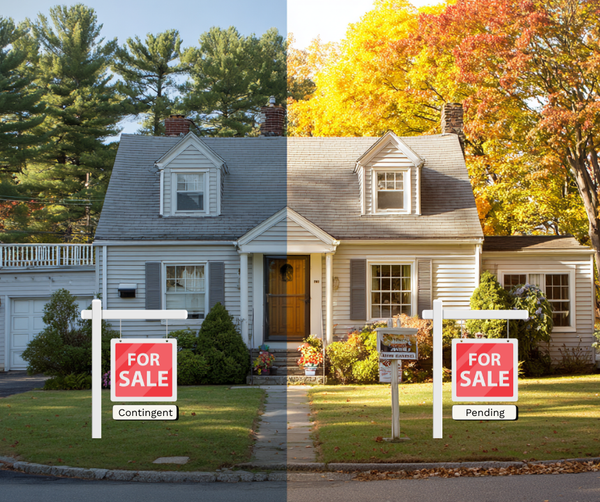Do I Pay Capital Gains Tax on my Home Sale?
Capital gains tax when selling a home in the US

Capital gains tax is a tax on the profit you make when you sell an asset, such as a home. If you sell your home for more than you paid for it, you may be liable for capital gains tax. However, there are some important exceptions, such as the home sale capital gain exclusion. This is a brief summary, there are special circumstances and conditions that may not apply to this post.
How much is capital gains tax on home sales?
The capital gains tax rate on the sale of a primary residence can be as high as 20 percent of the profit on a home owned for more than a year and as high as 37 percent on one owned for a year or less. However, if you own and live in the home for two out of the five years before the sale, you will likely be exempt from any capital gains taxes up to $250,000 in profit, or $500,000 if married and filing jointly.
How to avoid capital gains tax on home sales
There are a few ways to avoid paying capital gains tax on the sale of your home:
- Meet the requirements for the home sale capital gain exclusion. As mentioned above, if you own and live in your home for two out of the five years before the sale, you can exclude up to $250,000 in profit from your taxable income, or $500,000 if married and filing jointly.
- Rollover your capital gains into a new home purchase. If you buy a new home within two years of selling your old home, you can defer paying capital gains tax on the sale of your old home by rolling over your capital gains into the purchase of your new home.
- Sell your home to a related party. If you sell your home to a child, grandchild, or parent, you can defer paying capital gains tax until the related party sells the home.
How to calculate capital gains tax on home sales
To calculate your capital gains tax on the sale of your home, you will need to determine your cost basis and your net sales proceeds. Your cost basis is the amount you paid for the home, plus the cost of any improvements you made. Your net sales proceeds is the amount you received for the sale of the home, minus any selling expenses, such as real estate agent commissions and closing costs.
Once you have determined your cost basis and net sales proceeds, you can calculate your capital gain by subtracting your cost basis from your net sales proceeds. If your capital gain is greater than the home sale capital gain exclusion, you will be liable for capital gains tax on the remaining amount.
How to report capital gains tax on home sales
You will need to report your capital gains tax on your federal income tax return. You can do this by completing Schedule D (Form 1040), Capital Gains and Losses. You will also need to file Form 8949, Sales and Other Dispositions of Capital Assets, if you had any capital gains or losses from other sources.
If you have any questions about capital gains tax on home sales, you should consult with a tax advisor or Realtor.
Tim Vicsik
RE/MAX 100
(574) 329-9587
Tim@TimVicsik.com
www.ND-Condos.com
Categories
- All Blogs (61)
- Best Time To Sell (3)
- Condos and Villas (15)
- Elkhart (31)
- For Buyers (43)
- For Sellers (22)
- FSBO (12)
- Granger (28)
- Guides (36)
- Housing Market (29)
- Housing Trends (2)
- Inspections (3)
- Lifestyle (12)
- Market Trends (7)
- Mishawaka (29)
- Mortgage (16)
- Notre Dame (32)
- Property Tax (3)
- South Bend (44)
- Things To Do (5)
- Waterfront (5)
Recent Posts










GET MORE INFORMATION

